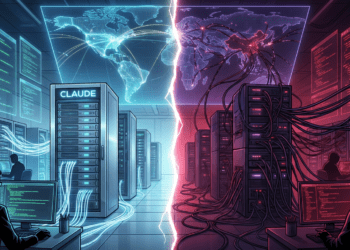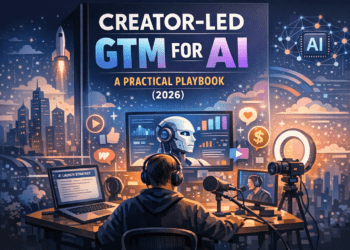
The internet landscape just shifted dramatically. On July 1, 2025, Cloudflare announced a groundbreaking change that could reshape how AI companies access web content forever.
The End of Free AI Scraping
Cloudflare, which powers 20% of the web, has become the first major internet infrastructure provider to block AI crawlers by default. This isn’t just another tech update it’s a fundamental shift from the Wild West era of AI scraping to a permission-based model.
The company’s CEO Matthew Prince didn’t mince words: “If the Internet is going to survive the age of AI, we need to give publishers the control they deserve and build a new economic model that works for everyone.”
The Numbers Tell a Stark Story
Why the dramatic change? New data from Cloudflare reveals just how lopsided the current system has become. While Google’s crawler scraped websites 14 times for every referral it provided, the AI companies were far more aggressive:
- OpenAI’s crawler scraped sites 1,700 times per referral
- Anthropic scraped an astounding 73,000 times per referral
These numbers expose the broken economics of the current web ecosystem. Publishers create content, AI companies harvest it for free, and creators get nothing in return.
Introducing Pay Per Crawl: A New Marketplace
Cloudflare’s solution comes in two parts. First, all new domains now block AI crawlers by default. Second, they’ve launched an experimental marketplace called “Pay Per Crawl” that lets publishers charge AI companies for each scrape.
The system works elegantly. Publishers set their prices, AI companies decide whether to pay or walk away, and Cloudflare handles the transactions. It’s micropayments for the AI age.
“Each time an AI crawler requests content, they either present payment intent via request headers for successful access or receive a 402 Payment Required response with pricing,” Cloudflare explained.
Industry Giants Rally Behind the Change

The response from major publishers has been overwhelmingly positive. Roger Lynch, CEO of Condé Nast, called it “a game-changer for publishers.” The Atlantic’s CEO Nicholas Thompson praised Cloudflare for addressing how “giant AI companies have built businesses on training data that they never paid for.”
Major companies supporting the initiative include The Associated Press, The Atlantic, Fortune, BuzzFeed, Reddit, Pinterest, and dozens of others. Even Universal Music Group has thrown its weight behind the permission-based approach.
The Technical Revolution
This isn’t just about money it’s about transparency. Cloudflare is working with AI companies to create new standards where crawlers must clearly identify their purpose. Are they scraping for training data? Search results? Something else entirely?
Website owners can then make informed decisions about which crawlers to allow. It’s granular control that was impossible before.
The Broader Implications
The timing couldn’t be more critical. As Ars Technica reported, publishers are facing an existential crisis. Traditional search traffic is declining as people increasingly turn to AI chatbots for answers.
Prince highlighted this shift during a recent event: “People trust the AI more over the last six months, which means they’re not reading original content.”
Looking Toward an Agentic Future
Cloudflare envisions an even more sophisticated future. Imagine AI agents with budgets, programmatically negotiating access to premium content. Need the latest cancer research? Your AI assistant could automatically purchase access to the best medical journals.
“What if an agentic paywall could operate at the network edge, entirely programmatically?” Cloudflare mused in their announcement.
The Challenges Ahead
The system isn’t without hurdles. Success depends on AI companies actually participating rather than simply finding workarounds. There’s also the technical challenge of accurately identifying AI crawlers something that currently relies on traffic pattern analysis and user reports.
Price discovery will be crucial. Publishers need to find the sweet spot between fair compensation and reasonable access costs. Set prices too high, and AI companies might look elsewhere. Too low, and the economic model fails.
A New Chapter for the Web

Over one million Cloudflare customers have already chosen to block AI crawlers since the option became available in September 2024. Now, with default blocking for new domains, the balance of power is shifting back to content creators.
This represents more than a policy change it’s a philosophical shift. The internet is moving from an opt-out model where AI companies take first and ask questions later, to an opt-in model where permission comes first.
As Prince emphasized, “Original content is what makes the Internet one of the greatest inventions in the last century, and we have to come together to protect it.”
The experiment is just beginning, but the implications are massive. If successful, Cloudflare’s approach could establish a new economic foundation for the AI-powered web one where creators are compensated, AI companies get quality content, and the internet remains vibrant and diverse.
The age of free AI scraping is ending. The age of permission-based content access has begun.
Sources
- Cloudflare Press Release
- TechCrunch: Cloudflare launches a marketplace that lets websites charge AI bots for scraping
- The Verge: Cloudflare will now block AI crawlers by default
- Ars Technica: Pay up or stop scraping: Cloudflare program charges bots for each crawl
- Cloudflare Blog: Introducing Pay per crawl










